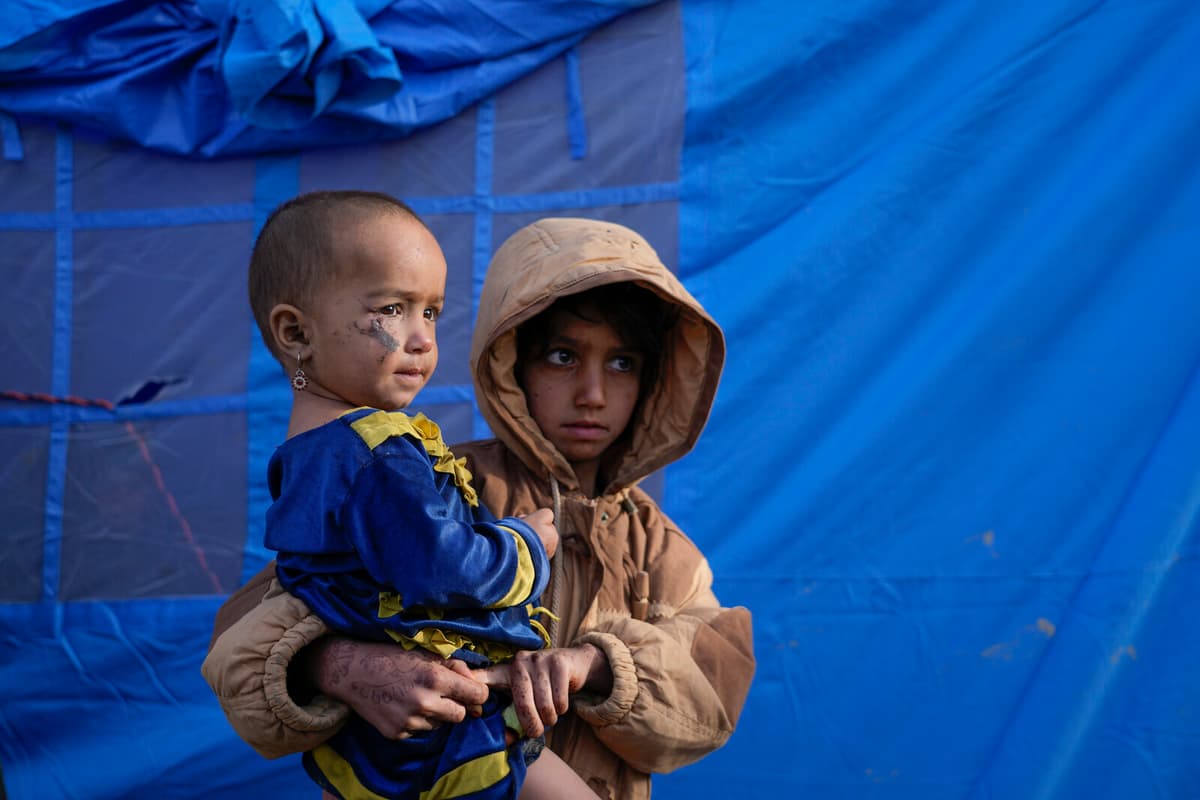Franklin Wanyama was born HIV-positive. The 29-year-old in Nairobi is one of millions of people worldwide whose life-saving treatment is funded by a US aid project.
We are in a state of panic, he now tells the magazine Nature.
More than 20 million people, most of them in Africa, receive antiretroviral medication through the US emergency plan for HIV and AIDS (Pepfar) with a budget of over 70 billion kronor. If Pepfar is stopped – temporarily or permanently – catastrophic consequences await, writes Nature.
The US Department of State in Washington is justifying the dismantling of the aid agency USAID by saying they will review whether existing aid projects are effective, in line with US foreign policy and if they "put America first". Foreign Minister Marco Rubio accuses USAID's leadership of refusing to follow political directives.
Maternal care discontinued
Earlier in the week, Trump's so-called efficiency chief Elon Musk boasted about having "made a mess" of USAID. The New York Times columnist Nicholas Kristof has a different perspective : "The world's richest men are taking on the world's poorest children", he writes.
They seem not to understand exactly what they are shutting down when they issue these broad directives. They are pulling levers without knowing what's on the other side, says aid worker Jeremy Konyndyk to the newspaper.
The effects of the cuts are being felt worldwide: Maternal and psychiatric care for women in Afghanistan, Pakistan, Gaza, and Ukraine has been discontinued, according to the UN Population Fund Unfpa. In Nepal, a project against malnutrition has been forced to close.
And in Khartoum, the capital of war-torn and famine-stricken Sudan, soup kitchens have been forced to stop providing food to hundreds of thousands of people.
USA first
From Syria, Human Rights Watch warns of chaos when employees in detention camps with tens of thousands of people – many of them former IS members with families – are forced to lay off their work.
We risk sudden instability and increased violence, with former IS members back on the streets, says former USAID worker Susan Reichle to BBC.
According to the decree signed by Trump on his first day on the job, the aid stoppage is to last for 90 days. During that time, all projects will be reviewed. Marco Rubio has later announced that life-saving interventions can temporarily continue. And on Friday, Judge Carl Nichols in Washington stopped parts of the cuts, including the order to lay off thousands of USAID employees worldwide.
But while the tug-of-war continues in the courts and politics, much remains unclear. In the confusion, thousands of projects have been paralyzed.
"Every dollar we spend, every project we fund, every policy we pursue must be justified by answering three simple questions", Rubio has said.
"Does it make the USA safer? Does it make the USA stronger? Does it make the USA more successful?"
USAID is the US state aid agency with offices in around 60 countries and operations in around 120 countries.
According to the US Congress, USAID has over 10,000 employees and a budget of 42.8 billion dollars, equivalent to almost half a billion kronor.
The funds are intended for both humanitarian aid – disaster relief – and long-term development initiatives.






